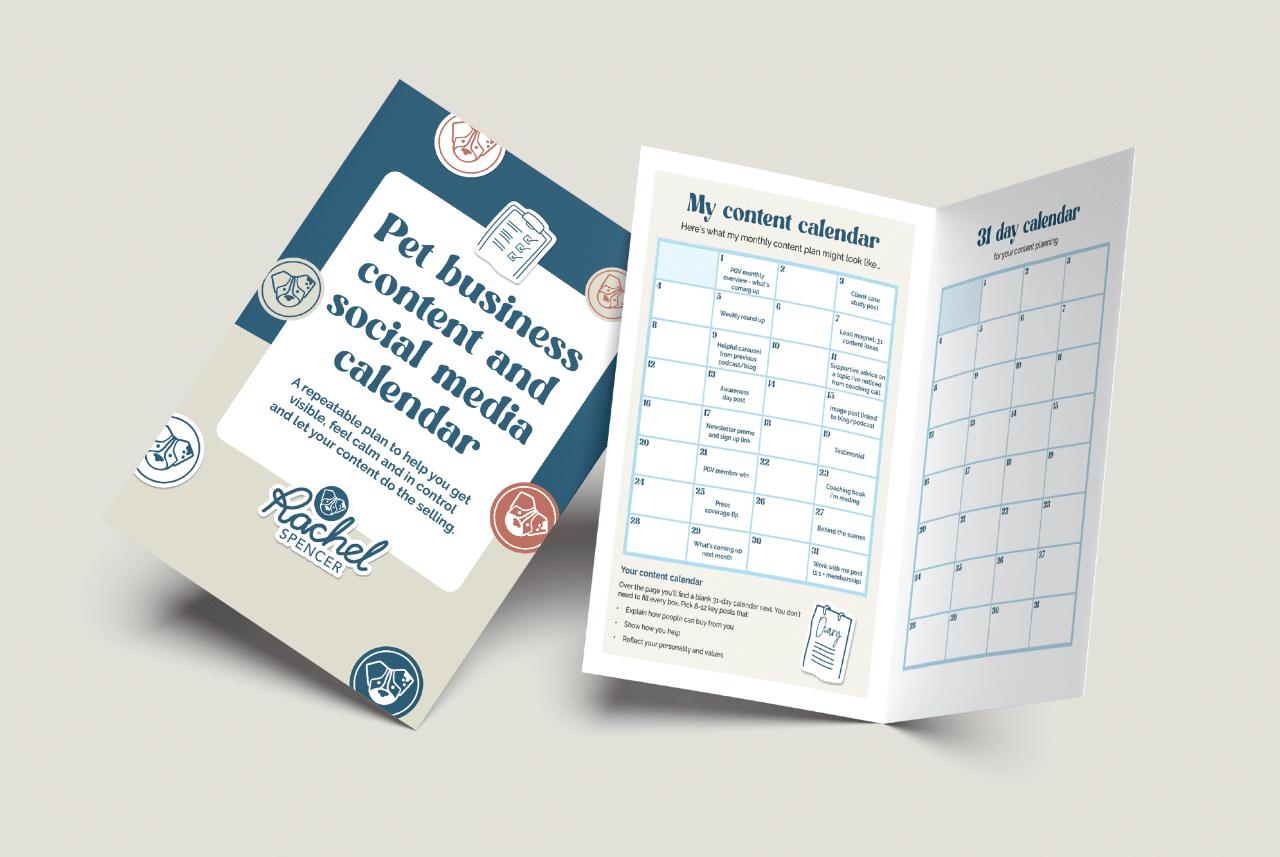How to stay on the right side of the law with your content
When emotions are high and conversations are heated, it’s easy to forget that what you post online is legally considered published.
That Instagram Story, Facebook post or podcast episode carries the same legal weight as a newspaper headline.
In this blog, I’m sharing key insights from a recent member workshop where we explored defamation law, why it matters for your business, and how to protect yourself – without feeling like you need to bite your tongue or stay silent.
Why do small business owners need to know about defamation?
I ran a session on defamation and how it impacts on content for small businesses as part of my Pets Get Visible membership.
It came following seeing many posts online that were actionable.
And in the online world we’re in, and in the pet space, where emotions can run high, it’s easy to forget that there are laws around what you can and can’t say.
As a trained journalist, I wanted to offer a grounded, fact-based understanding of how defamation law works – especially in challenging online spaces.
This post is to help you feel informed, confident and clear about how to show up online in a way that protects both your message and your business.
What is defamation and how can it apply to your pet business?
A statement is legally defamatory if it seriously harms someone’s reputation by:
- Exposing them to hatred, ridicule or contempt
- Causing them to be shunned or avoided
- Lowering them in the eyes of “right-thinking” members of society
- Disparaging them in their profession or business
And under UK law, that statement must also cause – or be likely to cause – serious harm to someone’s reputation.
Why this matters to you as a small business owner
You don’t need to be a newspaper or broadcaster to fall under these laws.
You’re legally considered a publisher – whether you’re writing a blog, sharing Instagram Stories, commenting on Facebook, or posting in a WhatsApp group.
And anyone can sue for defamation – not just celebrities or big brands and while you can’t get legal aid for defamation claims, ‘No win, no fee’ arrangements have made them more accessible.
So how do you protect your pet business from a defamation claim?
Ask yourself these questions before you post:
- Is what I’m saying defamatory (based on the legal definition above)?
- Could someone be identified, even if I don’t name them?
- Could it cause serious harm to their reputation?
- Do I have a defence?
Your three key legal defences
- Truth
You can prove what you said is true – with evidence like screenshots, video, photographs or documents. - Honest opinion
What you shared is clearly your opinion, based on provable facts, and not stated as fact. - Public interest
The information you shared genuinely benefits or protects the public (e.g. exposing wrongdoing or safeguarding health/safety).
What counts as ‘publication’?
Publication doesn’t just mean blogs or emails. It includes:
- Instagram Stories or Reels
- Facebook posts and comments
- WhatsApp or Messenger messages
- Tweets, TikToks, and YouTube videos
- Podcast episodes or newsletters
Even reposting or quoting someone else’s words can be considered a fresh case of defamation under the ‘repetition rule.’
Sally Bercow case – A single tweet cost her £150,000 and people who retweeted were also subject to legal action.
This law protects you too
Defamation law isn’t just about what you say. It also gives you tools to stand up for yourself if you’re being treated unfairly online.
You can:
- Send a carefully worded response or legal warning
- Ask for damaging posts to be removed
- Defend yourself when false claims are made about you or your business
And if you’re unsure, ask colleagues for advice or seek out legal support.
Final thoughts
You don’t need to second-guess everything you post.
But if you’re calling someone out, critiquing a method, or joining a heated debate – pause, check the facts, and decide whether you would say this on the front page of a newspaper.
Resources and support
- Defamation Act 2013 – UK Government site
- McNae’s Essential Law for Journalists
- Pets Get Visible membership – the full recording is in the membership site along with a workbook for this session and you can sign up here.
Further reading
Is my Pets Get Visible membership right for you?
Navigating controversial topics in your pet business content





